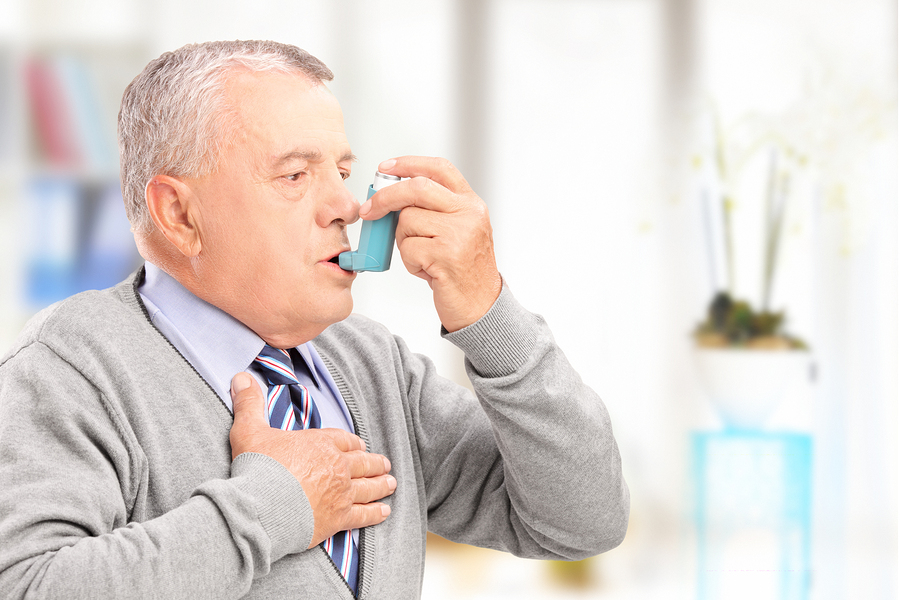Is your asthma worse in summer? Here’s how to avoid warm-weather flare-ups
From pollen to holidays, experts offer advice on managing seasonal asthma triggers.
Do your asthma symptoms change with the seasons? While the winter months can mean pesky infections and extreme cold temperatures (both potentially troublesome for asthma), summer can bring its own set of ‘triggers’ for the 5.4 million people living with the condition in the UK.
“Asthma is a variable condition, and what triggers one person’s asthma may not trigger someone else’s,” points out Dr Andy Whittamore, in-house GP for Asthma UK. This means managing asthma is a case of monitoring your own symptom patterns, so you can identify the triggers that affect you. That way, you can take steps to avoid them – or prevent them causing problems by keeping on top of your medicine routine.
“If your asthma is well-managed and you rarely have asthma symptoms, you or your child should be able to enjoy the summer as much as anyone else,” adds Dr Whittamore.

Managing asthma well can keep symptoms at bay
Prepare for pollen season
Pollen is thought to be a ‘hidden trigger’ for 80% of people with asthma, according to LloydsPharmacy, who report that last year, 91% of their asthma control tests (the high-street pharmacy offers an Asthma Treatment and Advice service) took place from March-May, peak hay-fever season. Furthermore, 46% of the tests carried out during that period found people were not controlling their asthma well.
If you have asthma and are prone to hay fever, or find your symptoms flare-up in spring and summer, it might be worth checking out some of the apps that monitor and alert you to pollen forecasts. And if you’re struggling to keep symptoms under control, speak to your nurse or GP. Pharmacists can also advise on whether you’re using your medication appropriately.
Did you know many #asthma sufferers don’t use their inhalers correctly? Get a FREE assessment on your inhaler usage at LloydsPharmacy! pic.twitter.com/h2Apq2DkdI
— LloydsPharmacy IRL (@LloydsPharmIre) June 3, 2017
“Regular reviews of medication and the techniques for using the different inhalers are really important to help prevent asthma attacks,” says LloydsPharmacy’s Anshu Bhimbat. “We find inhaler technique is a common error among patients… I will always remember one patient who complained of asthma exacerbation. On reviewing her medication, it was revealed that she had been spraying the inhaler on her chest rather than inhaling it. A simple review, in this example, made a huge difference to her condition.”
Heading off on holiday this weekend? ✈️🌴 Check out our top tips for travelling with asthma:https://t.co/RbAmn7mG5q #FridayFeeling pic.twitter.com/bAwGSmH5v3
— Asthma UK (@asthmauk) August 11, 2017
Be travel savvy
Depending where you travel to, a holiday could mean a new set of triggers, especially if you’re in a new environment and climate that’s different to what you’re used to. “Some people find their symptoms improve on holiday because their exposure to allergens – such as pollen, pollution or house dust mites – is much lower in certain places,” says Dr Whittamore. “Other people may find that changes in routine, location, temperature, or even air travel, can make their asthma symptoms worse.
“The best thing people can do to prevent symptoms and attacks when they’re on holiday is to keep on top of their medicine routine. It’s also a good idea for people to get to know their individual asthma triggers and try to avoid these wherever possible.”
Stock up
Asthma UK has more advice about travelling with asthma on their website, and Dr Whittamore adds: “It’s always a good idea to carry your inhalers (and all your spare inhalers) in your hand luggage, in case your inhaler runs out or if your checked-in baggage goes missing. You should take enough to last you the whole holiday, plus an extra week’s supply.
“Before you go away, try to find out how you can get medical help at your holiday destination. This could be as simple as finding out what the local emergency number is, and keeping those contact details with you. It’s also worth knowing how you can get more supplies of your asthma medicines at your destination, as this may vary in different countries.”
Heading on holiday with your child with asthma? ✈️🏖️Here’s how to have a safe & fun time:https://t.co/oWWLTx5RXp #TravelTuesday pic.twitter.com/BgW54PxR1H
— Asthma UK (@asthmauk) August 15, 2017
Fun factor
Summer is all about letting your hair down and enjoying life – and there’s no reason your asthma should stop you. But, from smoky barbecues to greater exposure to air pollution if you’re pounding the pavements on days out, it’s a good idea to be aware of any potential summertime asthma triggers.
And just make sure those carefree summer vibes don’t extend to your medicine/inhaler regime.

Make sure kids keep up a regular routine with their inhaler
“The summer holidays are a time when it’s easy for medicine routines to go out of the window, which could increase the risk of a potentially fatal asthma attack,” says Dr Whittamore. “It’s important that people with asthma maintain their usual preventer medicine routine over the summer. This is especially important for parents of children with asthma, as it will help to protect their child from an asthma attack both over the summer and when they go back to school.”
Concerned about asthma? Speak to an expert nurse via the Asthma UK Helpline on 0300 222 5800 (Mon-Fri, 9am-5pm)
The Press Association
Latest posts by The Press Association (see all)
- Princess Charlotte ‘s ninth birthday marked by picture release - May 2, 2024
- Strong passwords more important than ever, experts warn - May 2, 2024
- Princess Charlotte set to celebrate ninth birthday - May 1, 2024
- How edible flowers can make your dishes look and taste divine - April 30, 2024
- Beauty entrepreneur Liz Earle on turning 60: Ageing is a gift - April 30, 2024




















